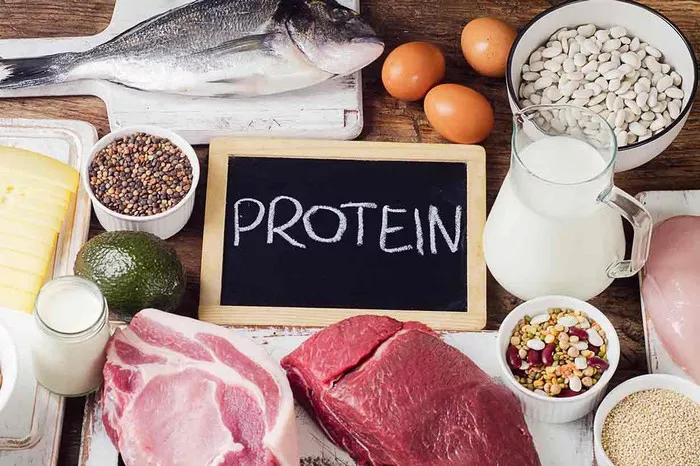Football is a physically demanding sport that requires strength, speed, endurance, and agility. To perform at their best on the field, football players must prioritize proper nutrition, including adequate protein intake. In this comprehensive guide, we’ll explore the importance of protein for football players, delve into the factors that influence protein requirements, and provide practical recommendations for optimizing protein intake to support performance, recovery, and overall health.
The Role of Protein in Football Performance
Protein plays a crucial role in supporting the health and performance of football players in several ways:
Muscle Repair and Growth: Football involves frequent and intense physical exertion, resulting in muscle damage and breakdown. Protein provides the essential amino acids necessary for repairing and rebuilding muscle tissue, promoting muscle recovery, and supporting muscle growth and adaptation to training.
Strength and Power Development: Protein is essential for building and maintaining lean muscle mass, which is critical for generating strength, power, and explosiveness on the field. Football players rely on strong, powerful muscles to execute tackles, blocks, sprints, and jumps effectively.
Immune Function: Intense training and competition can temporarily suppress the immune system, increasing the risk of illness and infection. Protein supports immune function by providing the amino acids needed for synthesizing antibodies and immune cells that help defend against pathogens and promote recovery from injury and illness.
Injury Prevention and Recovery: Adequate protein intake is associated with faster recovery from injuries, including muscle strains, sprains, and fractures. Protein supports tissue repair and regeneration, helping football players bounce back more quickly from training sessions and games.
Factors Influencing Protein Requirements
Several factors influence the protein requirements of football players, including:
Training Volume and Intensity: Players engaged in high-intensity training sessions, frequent practices, and competitive games have higher protein needs to support muscle repair, recovery, and adaptation to training stimuli.
Body Composition Goals: Football players may have different goals regarding body composition, such as increasing muscle mass, reducing body fat, or maintaining weight. Protein intake can be adjusted accordingly to support these goals while meeting overall energy needs.
Position and Playing Style: The position played and playing style can affect protein requirements. For example, linemen and linebackers may require higher protein intakes due to their larger size and physical demands compared to wide receivers or defensive backs.
Age and Growth Stage: Younger football players, particularly adolescents and teenagers, have higher protein needs to support growth, development, and maturation of muscle tissue, bones, and other body systems.
Practical Recommendations for Protein Intake
While individual protein requirements can vary based on factors such as body weight, training volume, and goals, general recommendations can provide a useful starting point for football players looking to optimize their nutrition:
Set Protein Goals: Aim to consume an adequate amount of protein at each meal and snack to support muscle repair, recovery, and growth. As a general guideline, aim for approximately 0.8-1.2 grams of protein per kilogram of body weight per day for most football players.
Prioritize Lean Protein Sources: Choose high-quality, nutrient-dense protein sources that provide essential amino acids and other important nutrients. Lean protein sources include poultry, fish, lean meats, eggs, dairy products, legumes, tofu, tempeh, and protein-rich grains such as quinoa and amaranth.
Distribute Protein Intake Throughout the Day: Spread protein intake evenly throughout the day, including breakfast, lunch, dinner, and snacks. This approach ensures a steady supply of amino acids for muscle repair and growth and maximizes the muscle-building potential of each meal.
Include Protein-Rich Snacks: Incorporate protein-rich snacks into your daily nutrition plan to support recovery and energy levels between meals and training sessions. Examples include Greek yogurt, cottage cheese, protein shakes, protein bars, nuts, seeds, and nut butter.
Timing Protein Intake Around Workouts: Consume a source of protein before and after workouts to support muscle protein synthesis, recovery, and adaptation to training. Aim to consume a combination of protein and carbohydrates within 30-60 minutes before and after exercise for optimal results.
Stay Hydrated: Hydration is essential for optimal protein metabolism and muscle function. Make sure to drink plenty of fluids throughout the day, especially during and after workouts, to support hydration and recovery.
Monitoring and Adjusting Protein Intake
It’s essential for football players to monitor their progress, listen to their bodies, and adjust their protein intake as needed based on individual responses and goals. Here are some strategies for monitoring and adjusting protein intake:
Track Macronutrient Intake: Keep a food diary or use a nutrition tracking app to monitor your daily protein intake and ensure you’re meeting your goals. Adjust your intake as needed based on changes in training volume, body composition, and performance.
Assess Performance and Recovery: Pay attention to how your body responds to your current protein intake in terms of performance, recovery, energy levels, and overall well-being. If you’re experiencing fatigue, poor recovery, or suboptimal performance, consider increasing your protein intake.
Consult with a Registered Dietitian: For personalized guidance on nutrition and protein intake, consider consulting with a registered dietitian who specializes in sports nutrition. A dietitian can assess your individual needs, goals, and preferences and provide tailored recommendations to support your athletic performance and overall health.
Conclusion
Protein plays a critical role in supporting the health, performance, and recovery of football players by promoting muscle repair, strength development, immune function, and injury prevention. By understanding the factors that influence protein requirements and implementing practical strategies for optimizing protein intake, football players can fuel their bodies effectively and maximize their potential on the field. Whether you’re a professional athlete, collegiate competitor, or weekend warrior, prioritizing proper nutrition, including adequate protein intake, is essential for achieving peak performance and overall well-being in football and beyond.
[inline_related_posts title=”You Might Be Interested In” title_align=”left” style=”list” number=”6″ align=”none” ids=”5698,5693,5688″ by=”categories” orderby=”rand” order=”DESC” hide_thumb=”no” thumb_right=”no” views=”no” date=”yes” grid_columns=”2″ post_type=”” tax=””]

































